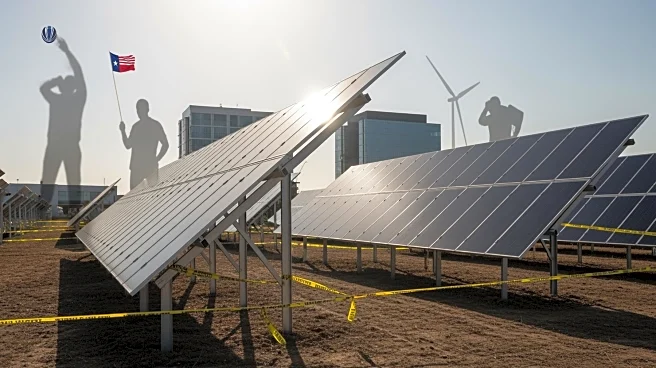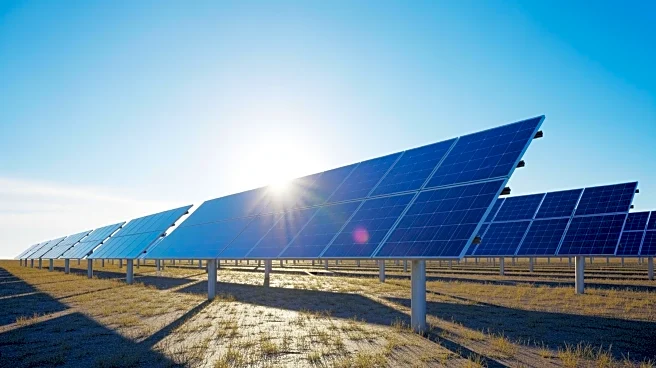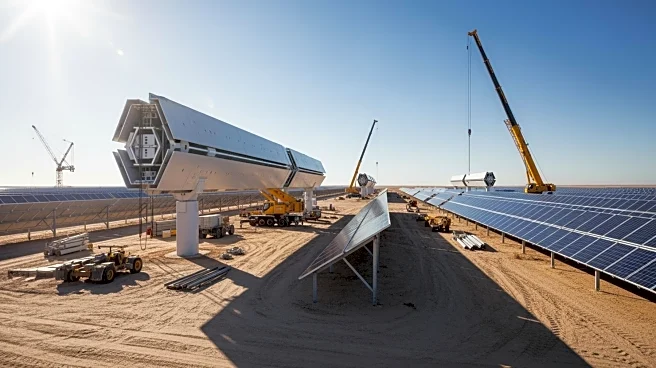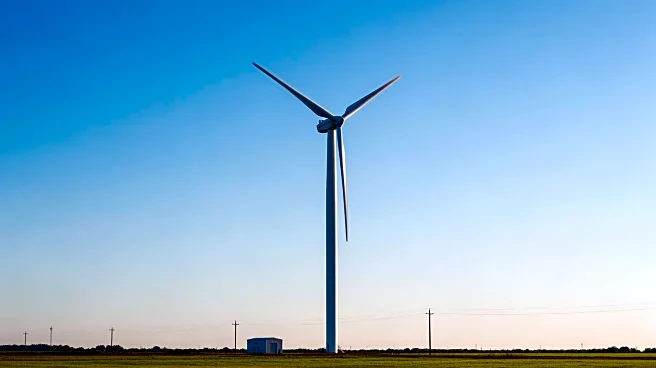What's Happening?
Texas is witnessing a significant expansion in its solar power capacity, driven by major projects from global firms like ENGIE and Longroad Energy. ENGIE is developing a 600-megawatt solar power plant
in Stonewall County, known as Swenson Ranch, set to be operational by 2027. This project is part of a power purchase agreement with Meta, which has secured all 600 megawatts for its data centers. Similarly, Longroad Energy is constructing a 400-megawatt solar power plant in Yoakum County, called 1000 Mile Solar, expected to be operational next year. Meta has also claimed the entire output of this project, advancing its goal to support data center operations with 100% clean energy. These developments highlight Texas's growing role in the renewable energy sector, despite political challenges at the federal level.
Why It's Important?
The expansion of solar power in Texas is crucial for several reasons. It underscores the state's potential to lead in renewable energy, providing cleaner alternatives to traditional power sources. The involvement of major tech firms like Meta indicates a strong demand for sustainable energy solutions, which can drive further investments and innovations in the sector. Additionally, these projects contribute to the economic growth of Texas by creating jobs and attracting investments from global financial institutions. The commitment from companies like Morgan Stanley and CIBC to finance these projects reflects confidence in the U.S. solar market, despite political uncertainties. This trend could influence other states to adopt similar strategies, promoting a nationwide shift towards renewable energy.
What's Next?
The solar power projects in Texas are expected to continue expanding, with companies like Ferrovial planning new facilities and Third Pillar Solar exploring floating solar power plants. These initiatives could further enhance Texas's renewable energy capacity and set a precedent for other states. As the U.S. approaches future elections, the political landscape may shift, potentially impacting federal energy policies. Stakeholders in the solar industry will likely advocate for policies that support renewable energy growth, aiming to align with global trends and maintain competitiveness. The ongoing developments in Texas could serve as a model for other regions, encouraging broader adoption of solar energy solutions.
Beyond the Headlines
The expansion of solar power in Texas also presents environmental benefits, such as reducing carbon emissions and conserving water resources through innovative solutions like floating solar panels. These projects highlight the intersection of technology and sustainability, offering a glimpse into the future of energy production. The collaboration between tech firms and energy companies demonstrates a growing recognition of the importance of sustainable practices in business operations. As these projects progress, they may inspire further advancements in renewable energy technologies, contributing to global efforts to combat climate change.











